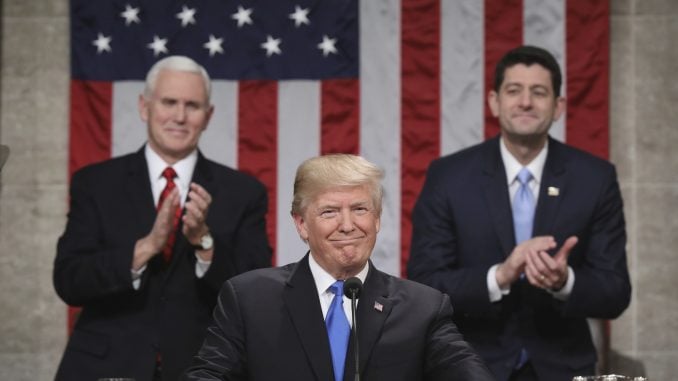
RALEIGH — North Carolina House Speaker Tim Moore (R-Kings Mountain) last week invited President Donald Trump to the state’s legislature to deliver the State of the Union address. On Monday, Moore received a phone call from the President who thanked him for the invite but said he was making other arrangements to deliver the annual address. “He was sincerely appreciative of the invitation,” said Moore in a phone interview with the North State Journal. “He mentioned that N.C. was doing well and said we were doing a great job.”
Moore wrote to the president on Friday, inviting Trump to deliver the address in the House chamber of the North Carolina General Assembly. Moore was inspired to extend the invitation after U.S. House Speaker Nancy Pelosi (D-Calif.) suggested in a letter to the President that the annual address be delayed or given in writing due to the partial government shutdown.
In his letter, Moore said it is “essential” that Americans hear from their president on the effort to reopen the federal government.
On Friday, Moore told the North State Journal that he extended the invitation after hearing about Pelosi’s letter. “It disappointed me that Speaker Pelosi would not honor protocol and refuse to invite the President to give the State of the Union Address,” said Moore during a phone interview Friday. “After thinking about it for a couple of days, I wanted to offer to do something as speaker of our state House to show respect for the office of the President.”
The legal basis for the State of the Union Address comes from the U.S. Constitution. Article II, Section 3(1) of the Constitution says the President “shall from time to time give to the Congress Information of the State of the Union, and recommend to their Consideration such measures as he shall judge necessary and expedient.” The Constitution does not mandate the location of the speech. Including Trump’s 2018 message, the State of the Union has been directly delivered to Congress 95 times. Woodrow Wilson revived the practice of presenting the message to Congress in person in 1913 when it became a platform for the President to rally support for his agenda.



